The latest crazy idea being pushed in Washington is that federal enforcement of marihuana laws be shifted from DEA and FBI to the Bureau of Alcohol, Tobacco, and Firearms (BATF). This is a relatively small law enforcement agency in the Justice Department whose major area of expertise and jurisdiction these days is working with other federal and state agencies on cases involving explosives. Alcohol and tobacco responsibilities are relatively small under federal jurisdiction and the firearms jurisdiction, while important, is complicated and controversial (e.g., Fast & Furious gun running operations, etc.).
As crazy as this idea is, I can understand why the pot lobby would be pushing it. For one thing, DEA and BATF are both agencies of the Justice Department and so the Attorney General has the call as to which agency should enforce which provisions of statutes (like the Controlled Substances Act) assigned by Congress to the Justice Department. Because of this, it might not take an Act of Congress to authorize such a shift shift, assuming the AG would go for it.
Moreover, the basis for even considering something like this would be to tax cannabis like alcohol and tobacco are currently taxed under federal law. This, of course, would be a back-door way of legalizing marihuana if only for the purpose of taxing it. Lord Elgin did the same thing in China in 1858 when he persuaded the Chinese in the Treaty of Tianjin to accept the de facto legalization of imported opium so it could be taxed. That opened the door to expanding domestic production of opium that was sold on the black market for far less than the taxed British imports. By the end of the 19th century, the Times of London had reported that 70 percent of adult males in China were opium users.
More recently, in 1937, the US Congress enacted the Marihuana Tax Act to regulate the commerce in the medical use of cannabis. A very small tax was imposed on licensed medical providers, while a far more onerous tax was levied on anyone caught in possession of untaxed marihuana. In 1969, in a case titled Leary v. United States, 395 U.S. 6, the Supreme Court tossed a provision pertaining to the 1937 Marihuana Tax Act. In doing so, the Court noted that in its more than 30 year history, the Act raised very little revenue, which had been its legal basis. The Court took notice of the large increase in the illicit commerce and use of marihuana during the same period.
What’s that old aphorism about the first repeat of history is a tragedy, the second is farce. The NORML folks, in my view, are into their farcical period.
John Coleman

